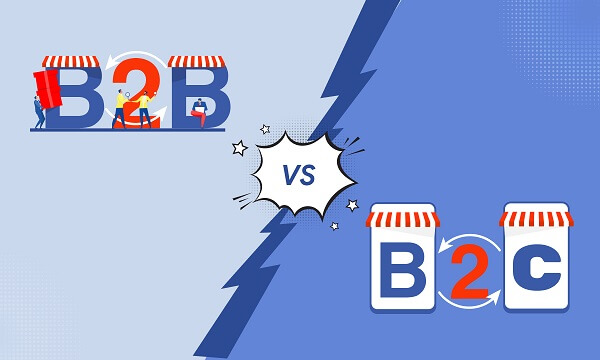Do The SEO Requirements Differ For B2B And B2C Businesses?

Search engine optimization remains fundamentally the same whether you are in the B2B (business to business) or B2C (business to customer) industry. However, the most significant difference between the two lies in the core objectives of your campaign. In this article, we’re going to highlight some of these key differences, for your convenience.
What is B2C?
B2C refers to the practice of selling products or services directly to consumers.
The process itself is relatively straightforward: you have your products / services; consumers find your brand online; they identify whether your offerings are suited to them or not; they (hopefully) make a purchase.
In many cases, consumers will make a purchase on the spot. Very rarely will someone need to spend a week or longer thinking about it. Many B2C transactions are compulsive.
What is B2B?
B2B refers to the practice of selling to other businesses.
The process is a little more complicated. The B2B sales funnel is typically much longer because you’re not dealing with consumers who are spending a smaller amount of money on products; (e.g., an eCommerce store selling running shoes); instead you are dealing with big purchasing decisions from businesses (e.g., an SEO consultant on the Gold Coast providing digital marketing services or hiring a web design agency).
What is the fundamental difference between both?
As briefly touched on, the biggest difference between B2C and B2B is in the size of sales funnel. Again, a B2C customer can encounter a brand and make a purchase on the very same day.
In B2B on the other hand, it is typically very rare. Sometimes it can take months after engaging with a B2B brand before signing on the dotted line and making a purchase.
It all depends on the business itself however. There’s a big difference between signing up with a digital marketing agency and hiring someone to clean the office windows.
How does B2B and B2C SEO differ?
So, how does this all impact the SEO side of things?
- Language and keyword usage: the language used in B2B SEO tends to be more technical and professional, with B2C being casual with persuasive sales copy. Similarly, keyword choice and search intent plays a big role in your keyword research.
- Decision makers: in B2C, the consumer makes the final decision; one person. In B2B, there are often multiple decision makers.
- Goals: while both B2C and B2B clearly want to make more sales and generate as much revenue as possible, there are differences. For example, B2B websites wish to attract as much qualified traffic as possible to convert into meetings / request whitepapers / take a free trial etc. all of which may lead to signups down the line. B2C on the other hand tend to make purchases directly through the website.
- Content: the content will vary significantly from B2B and B2C. B2C is more sales-driven while B2B relies on a more natural approach to nurturing leads, highlighting certain pain points and providing solutions. B2B businesses benefit greatly from thought-leadership and providing high-value information, whereas B2C can be more focused on entertaining content, as opposed to informational.
- Buyer personas: the target audiences are very different as well. B2C is focused on attracting a very specific type of person. B2B on the other hand is all about attracting a specific organization.
Conclusion
As you can see, while the SEO process itself is very similar (e.g., onsite optimization, keyword and audience research, UX design, link-building etc.), the goals and outcomes are different.
In any case, when you have a reputable SEO agency on your side, you’ll be making optimal conversions through your website!





